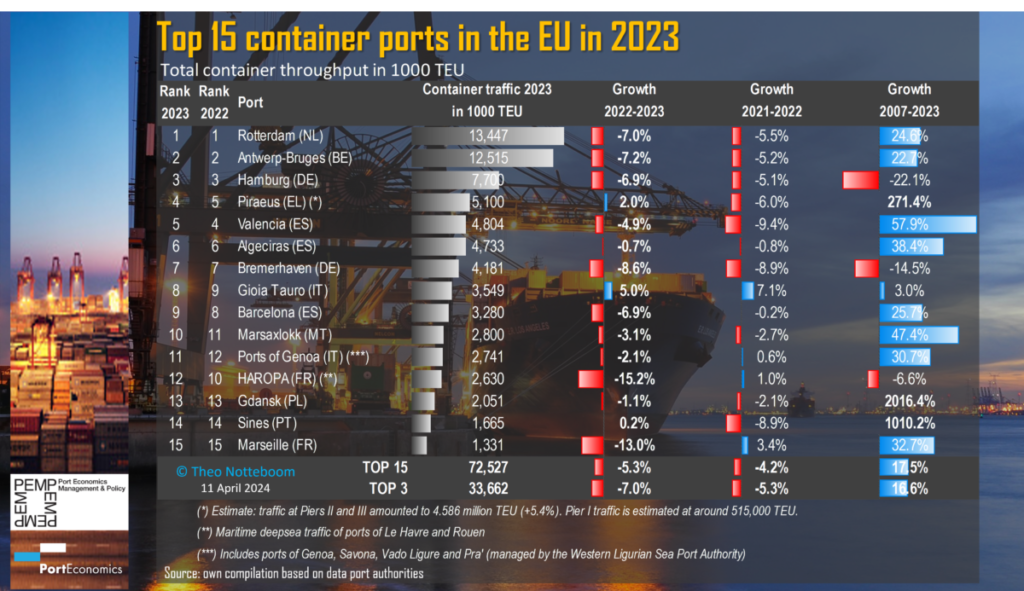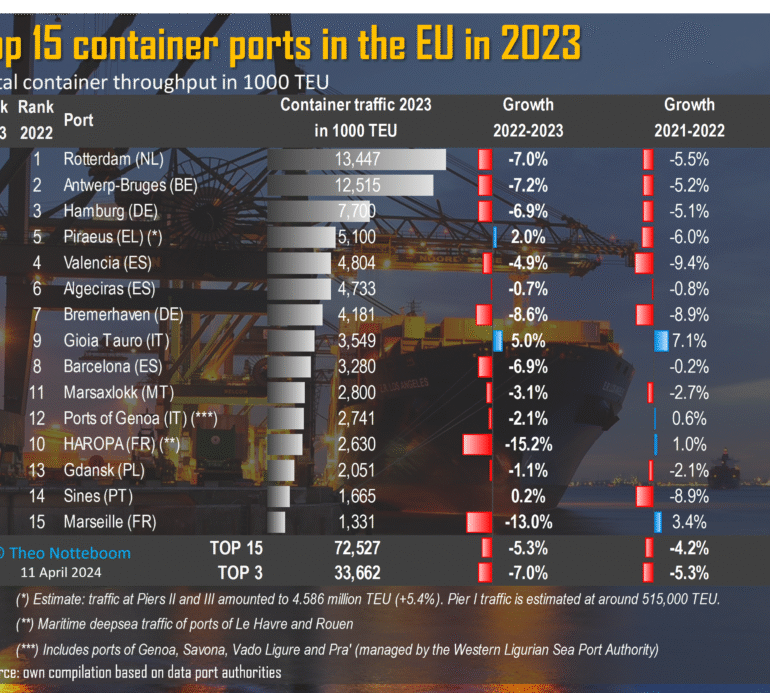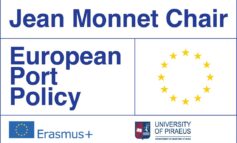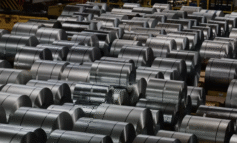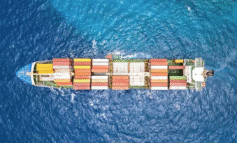PortEconomics co-director Theo Notteboom compiled a table showing the EU container port landscape in 2023, and provides a comprehensive overview of the trends, challenges, and notable developments within the EU container port sector in 2023:
The top 15 EU ports combined handled 72.5 million TEU in 2023, or 5.3% less than in 2022. This compares to -4.2% in 2022 and +5% in 2021. The economic and geopolitical situation is reflected in the handled container volumes.
The top three ports in the EU all recorded a traffic decline of around 7% in 2023 adding to a TEU drop of more than 5% in 2022.
Among the top 15 ports, only Gioia Tauro, Piraeus and Sines handled more containers in 2023 compared to 2022. A high sea-sea transhipment incidence characterizes these three ports. The Spanish transhipment port Algeciras, Polish gateway port Gdansk, and Ports of Genoa all recorded a small drop in container throughput. A traffic loss of 5.5% in the Genoa port area was largely compensated by an exceptional 30% growth in Savona/Vado Ligure managed by the same port system authority.
French ports HAROPA and Marseille were hit by massive double-digit TEU decreases in 2023. Spanish ports Valencia and Barcelona experienced a drop in container throughput of about 5 to 6%.
Benelux ports Rotterdam and Antwerp-Bruges remain by far the largest container ports in the EU. Piraeus became the fourth largest EU port in 2023 but keeps a respectable distance from Hamburg.
When taking a longer-term perspective, the TEU growth in a few ports can be considered rather underwhelming. The 2023 container throughput figures of German ports Hamburg and Bremerhaven, and French port HAROPA remained below the volumes handled in 2007, the year before the start of the financial-economic crisis.
On the other side of the spectrum, relative newcomers Gdansk, Sines and Piraeus recorded the biggest traffic gains in the period 2007-2023, while Valencia performed the best among the more long-established container ports.
